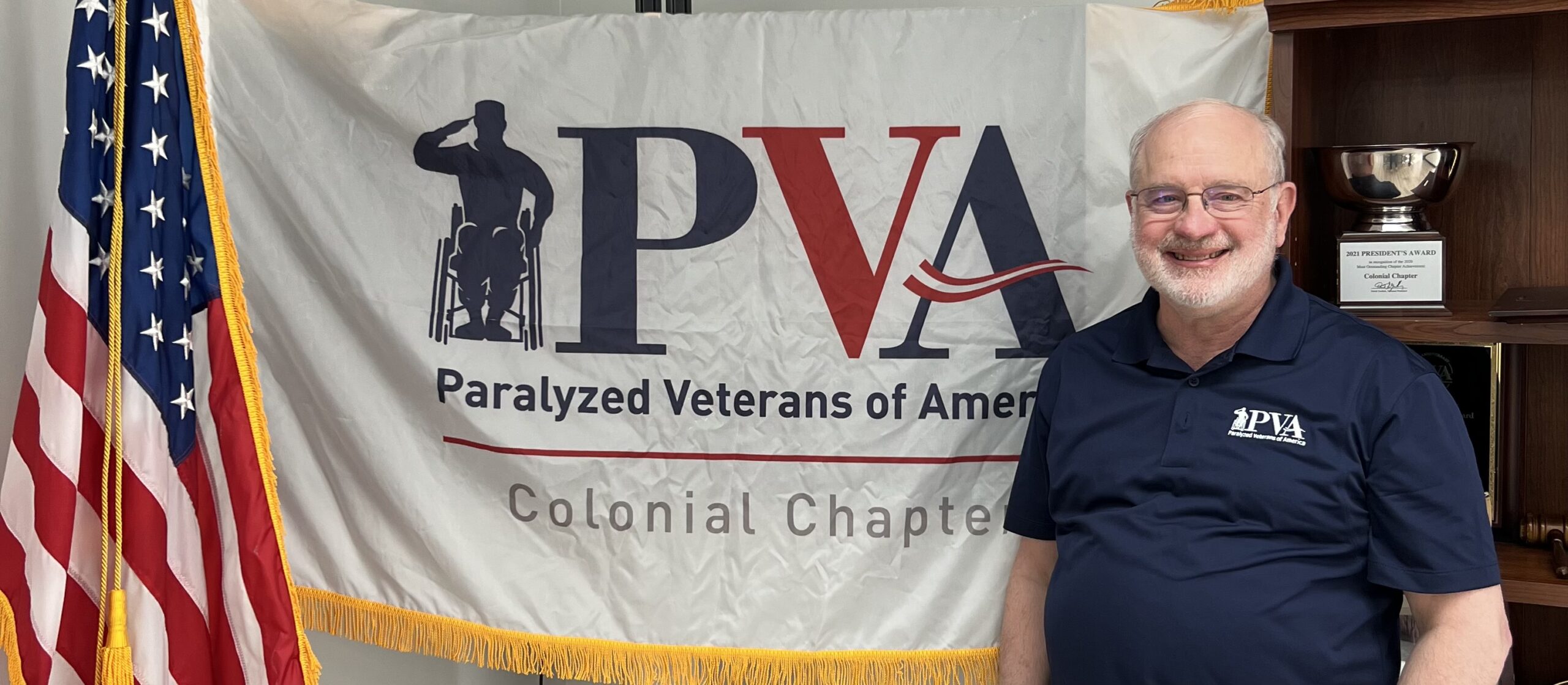Meet Tim Besse, M.A. ’17, management of aging services, a veteran of the United States Army who now works as an advocate for veterans with neurological injuries or diseases. As a student in the Erickson School, Tim made connections with a fellow student that sticks with him to this day. Thanks for sharing your story, Tim!
Q: What’s one essential thing you’d want another Retriever to know about you?
A: As far back as I can remember, I aspired to go to college and pursue a career that was dependent upon my college education. I enlisted in the U.S. Army (USA) at age 18 to take advantage of the GI Bill for education. During my 1973 – 1980 USA years, I completed the first three years of a University of Maryland Global Campus baccalaureate degree. In 1981, I completed my degree that was focused on social sciences, and I started a Department of Defense civilian career that ended in my 2016 retirement.
I was active in my community during my career, working with older adults, people with disabilities, and refugee families. In September 2016, two weeks into retirement, I entered the Erickson School at UMBC to earn my M.A. in the management of aging services. Today I am an affiliate of the U.S. Department of Veterans Affairs, wherein I advocate for veterans who are neurologically injured or who suffer from neurologic diseases.
Q: What’s the one thing you’d want someone who hasn’t joined the UMBC community to know about the support you found here?
A: That support will be a gift to themselves for a lifetime.
Q: Tell us about someone in the community who has inspired you or supported you, and how they did it.
A: I have many who supported me on my journey through the Erickson School. The person who stands out is my classmate Cynthia Garner [’16, M.A. ’17, management of aging studies]. The classmate closest to my age was 10 years younger than me. The classmate furthest from my age, Cynthia, was 40 years younger than I am. We were kindred souls, out to prove something to ourselves as well as to others! We were committed to each other not to let the other one fail. Cynthia once said to me: “Because I am young, people don’t think I know anything!” I responded to her, “Because I am old, people don’t think I know anything either!”
Regardless of the difficulty of the assignment, and regardless of the tight timeline, working with Cynthia, I knew we would pull through it! Cynthia was not only very bright, but she was ethical, unafraid to work hard to be successful, always gracious, and shared her talents to help others succeed too! On the day we graduated, I said to myself, “If there are just a few more like Cynthia, the world will be okay!”
“My insight into myself allows me to understand the constraints age has placed on these veterans. My insight enables me to recognize their right and their need for self-determination and explain to well-meaning family members why it is vital for their veterans to guide their lives.
Q: What did you love most about your program of study at UMBC?
A: The Erickson curriculum strives to enable its students to understand the needs of older adults and to be able to bring resources to meet those needs. For many of my classmates, the course content was abstract; it pertained to others and not yet to themselves. The course content was personal to me because I am an older adult. Many scenarios are used as examples, such as aging parents, changes in physical stamina, and cognitive changes. Also, traits that may improve with age include resilience and crystallized intelligence (wisdom) are current life events.
The curriculum enabled students to grasp the difficulties encountered by older adults and potential solutions for those difficulties. For those students who are older adults, the course content was as much about them as it was about an entire aging cohort. Every day, I work with older adult veterans and their families. My insight into myself allows me to understand the constraints age has placed on these veterans. My insight enables me to recognize their right and their need for self-determination and explain to well-meaning family members why it is vital for their veterans to guide their lives.
Q: What brought you to UMBC?
A: I came to UMBC because it offered the education I needed to work with older adults at my desired level of expertise. I stay engaged with UMBC and the Erickson School for the aid it provides me to improve my job skills.
Q: Where are you working now, and what do you like about it most?
A: I am a national service officer in the U.S. Department of Veterans Affairs. Our veteran population is aging. The average age for a veteran is 68. The average age for a Vietnam-era veteran is 72. Besides being older adults, these men and women have an extra layer on top of being an older adult. Veterans are more likely to contract Amyotrophic Lateral Sclerosis (ALS) and Multiple Sclerosis.
PTSD is more prevalent amongst veterans, especially combatant veterans. Veterans are more likely to fall than non-veterans. And then there is loneliness. It is gratifying to work with these older adults with their special needs. At my age my credo is if it’s not fun, I’m doing it! I anticipate I am not going anywhere.
* * * * *
UMBC’s greatest strength is its people. When people meet Retrievers and hear about the passion they bring, the relationships they create, the ways they support each other, and the commitment they have to inclusive excellence, they truly get a sense of our community. That’s what “Meet a Retriever” is all about.

